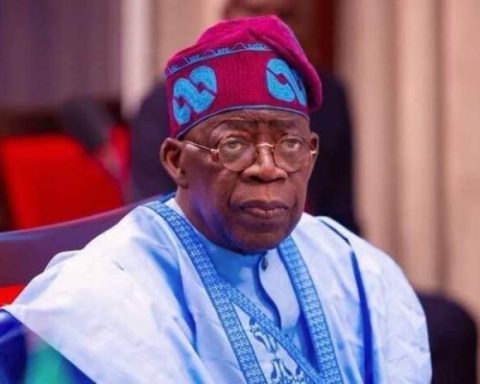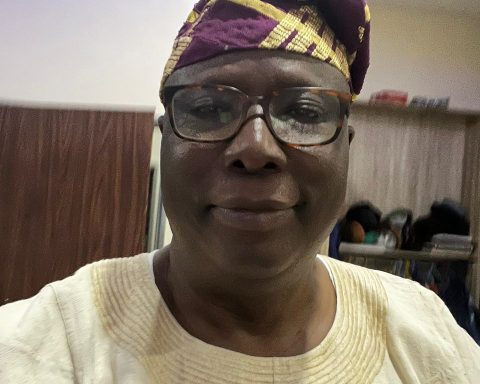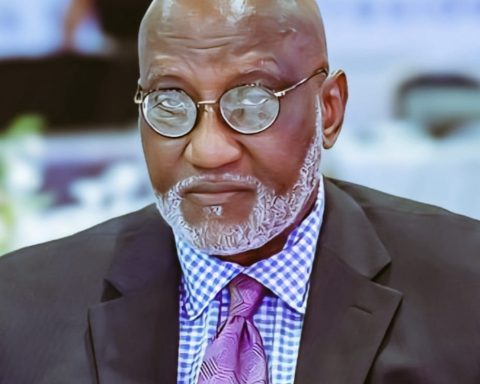The Nigerian Government, through the Minister of Education, Dr Maruf Alausa, recently announced the release of ₦50 billion to academic and non-academic staff unions of federal universities to settle long-overdue earned allowances.
The administration stated on 23 April 2025 that the sum released is part of a broader commitment to transform Nigeria’s education sector and shift the economy from resource-based to knowledge-based by investing strategically in education, infrastructure, and human capital.
Join our WhatsApp ChannelHow many universities are involved?
The amount sounds quite substantial, does it not? But how many academic and non-academic staff, and how many universities, are we referring to? As of 2025, Nigeria has 63 approved federal universities spread across the country. These institutions employ thousands of academic and non-academic staff, though exact staff numbers vary by university.
The ₦50 billion released to settle earned allowances is intended for academic and non-academic staff unions across all federal universities, including major institutions such as the University of Nigeria, Nsukka (UNN), the University of Ibadan (UI), and the University of Lagos (UNILAG).
UNN, established in 1960, has grown from about 100 academic staff at inception. More recent figures from LinkedIn suggest the university’s size is in the range of 5,001 to 10,000 employees. This expansion reflects the university’s evolution from a single-campus institution to one with four campuses, 15 faculties, and over 100 academic departments. The increase in staff numbers is consistent with the university’s growth in student population and academic offerings.
UI, founded in 1948, employs thousands of academic and non-academic staff and supports approximately 30,000 students, making it one of Nigeria’s foremost universities.
UNILAG, founded in 1962, is one of the largest and most competitive universities in Nigeria. As of 2024, it enrolls over 57,000 students across three campuses and twelve faculties. The university’s staff strength is substantial, with estimates indicating about 3,370 staff members comprising academic, administrative, and non-academic personnel.
The size and influence of these universities underscore the scale of the government’s intervention, as the ₦50 billion must be distributed among tens of thousands of staff across 63 federal universities. This makes the allocation significant but also highlights the challenge of meeting the expectations of such a large beneficiary pool.
What ASUU has been demanding
Aside from the number of staff involved in the fund, it is also crucial to ask: how much is the ₦50 billion released worth in light of what is being owed or what ASUU has been asking for?
Since 2009, ASUU has been demanding comprehensive funding and reforms, including the payment of earned academic allowances (EAA), revitalisation of public universities, better salaries, and renegotiation of agreements to reflect inflation and currency depreciation. The government initially promised to inject ₦1.3 trillion into university revitalisation funds in six tranches starting from 2013, but only about ₦200 billion has been released since then, with just ₦50 billion disbursed recently as part of that commitment.
READ ALSO: ASUU Strikes, Nepotism, Discrimination, Selfishness Exposed As Issues Of Concern To Young Nigerians
The union has repeatedly criticised the government for failing to implement the revitalisation agreements of 2012, 2013, and 2017, which are separate from allowances and salaries but are essential for improving educational quality.
ASUU’s demands also include the full payment of withheld salaries, release of third-party deductions such as loan repayments and retirement savings, and the implementation of the University Transparency and Accountability Solution (UTAS) instead of the government’s IPPIS system.
Crucially, the union insists on renegotiating the 2009 FGN/ASUU agreement, which included salary structures pegged at 3,000 US dollars for professors. This has now been eroded to about 200 US dollars due to naira depreciation, highlighting the severe decline in lecturers’ purchasing power.
READ ALSO: Nigerian Govt Should Convert N50bn Student Loan To Grants – ASUU President
It is then clear that ₦50 billion does not cover the broader revitalisation funds that universities urgently need to upgrade infrastructure and academic facilities, which remain largely unfunded despite repeated promises.
Given what the Director of Press at the Federal Ministry of Education, Folashade Boriowo, said, “It reflects the administration’s bold resolve to transition the nation from a resource-based to a knowledge-based economy through strategic investments in education, infrastructure, and human capital,” is the release of earned allowances enough? What about infrastructure, training, equipment, and laboratories?
The release of ₦50 billion without a warning strike
As much as the money is not all that has been promised, it is also important to recognise the fact that the Federal Government released the funds without a strike, as is usually the case.
According to the Minister of Education, Dr. Maruf Alausa, the government views this intervention not merely as a financial transaction but as a reaffirmation of its belief in the capacity of Nigerian youth and the crucial role university staff play in nurturing them. “The release aims to prioritise staff welfare and lay the foundation for a future where Nigerian students receive quality and globally competitive education.”
Yes, the Federal Government merits praise for releasing ₦50 billion to settle earned allowances without any strike warning from university staff unions. The Minister of Education, Dr. Alausa, and the Ministry’s Director of Press, Boriowo, highlighted that this payment reflects President Bola Tinubu’s commitment to transforming Nigeria’s education sector and maintaining industrial peace.
Can it follow the same path in other areas, such as paying the remaining three and a half months of withheld salaries from the 2022 seven-and-a-half-month strike?
Public concern
The public, airing their views on social media, maintains that, as much as there was no warning strike, it does not mean that the money will adequately take care of the universities in general.
For instance, Muyiwa Dare’s comment on Nurudeen Adeyemi’s LinkedIn post on 23 April 2025 stated: “For the fact that ASUU isn’t taking industrial action against the government doesn’t translate to excellent welfare of the ASUU ordinary members…..” This highlights a crucial reality: the absence of strikes does not automatically mean that university staff welfare or broader university needs are being fully met.
Another user also commented that “The sacrifices have been more on the side of the academics than the government. Earned allowances are only one item out of the many legitimate demands of ASUU.”
Aside from the aforementioned, another critical issue is budget allocation to education. The Federal Government allocated ₦3.52 trillion for education in the 2025 national budget, representing 7.3 per cent of the total ₦54.99 trillion budget. According to international benchmarks, this allocation is below recommended levels. The 2015 Incheon Declaration and other global guidelines recommend that countries allocate at least 4 to 6 per cent of their GDP or 15 to 20 per cent of total government expenditure to education to ensure adequate funding and quality outcomes.
In summary, the ₦50 billion release is the major confirmed fund directly addressing university staff welfare since Tinubu took office, while broader funding for infrastructure, equipment, and training has yet to see significant publicised allocations.
What the Government and ASUU should do
The government should significantly increase education funding to meet international standards and ensure timely payment of all salaries and allowances to maintain staff morale and industrial peace. Enhancing financial autonomy for universities will improve resource management and accountability.
The government should also know that investing in infrastructure, equipment, and staff training is essential to elevate educational quality.
Also, promoting university endowment funds and strengthening public-private partnerships can provide sustainable financing. Empowering agencies such as the National Universities Commission and TETFund will ensure efficient fund allocation. Finally, supporting research and innovation will drive national development, helping to break the cycle of strikes and improve Nigeria’s higher education system sustainably.
For ASUU, it should recognise that public scrutiny is high, and the transparent, judicious management of the ₦50 billion already released will strongly influence whether further funds are forthcoming. The government has made it clear that this payment is part of a broader reform agenda, not a blank cheque. As the union continues to press for the release of withheld salaries, revitalisation funds, and other outstanding demands, how effectively and transparently it allocates and accounts for the current funds will shape public opinion and government willingness for future releases.
Dr Mbamalu, the Publisher of Prime Business Africa, is a Media Consultant, Member of the Nigerian Guild of Editors and Jefferson Journalism Fellow.
Dr. Marcel Mbamalu is a distinguished communication scholar, journalist, and entrepreneur with three decades of experience in the media industry. He holds a Ph.D. in Mass Communication from the University of Nigeria, Nsukka, and serves as the publisher of Prime Business Africa, a renowned multimedia news platform catering to Nigeria and Africa's socio-economic needs.
Dr. Mbamalu's journalism career spans over two decades, during which he honed his skills at The Guardian Newspaper, rising to the position of senior editor. Notably, between 2018 and 2023, he collaborated with the World Health Organization (WHO) in Northeast Nigeria, training senior journalists on conflict reporting and health journalism.
Dr. Mbamalu's expertise has earned him international recognition. He was the sole African representative at the 2023 Jefferson Fellowship program, participating in a study tour of the United States and Asia (Japan and Hong Kong) on inclusion, income gaps, and migration issues.
In 2020, he was part of a global media team that covered the United States presidential election.
Dr. Mbamalu has attended prestigious media trainings, including the Bloomberg Financial Journalism Training and the Reuters/AfDB Training on "Effective Coverage of Infrastructural Development in Africa."
As a columnist for The Punch Newspaper, with insightful articles published in other prominent Nigerian dailies, including ThisDay, Leadership, The Sun, and The Guardian, Dr. Mbamalu regularly provides in-depth analysis on socio-political and economic issues.













